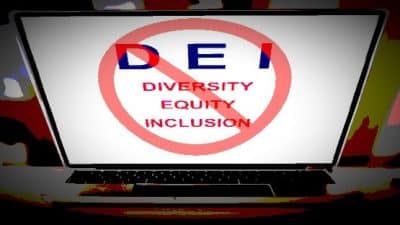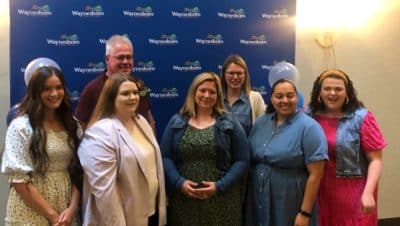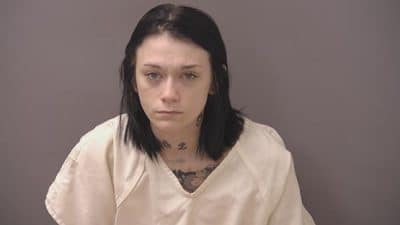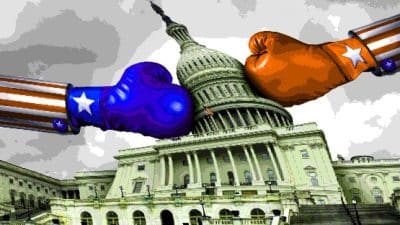
Within two weeks of a United States presidential election, most Americans begin to pay attention to the candidates and think about for whom they will cast their vote.
Bridgewater College Associate Professor of political science, Dr. Bobbi Gentry studies youth voting behavior and leads BC Votes on campus. She spoke at Augusta County Library in Fishersville on Thursday with “Introduction to 2024 Presidential Candidates.”
Gentry, the author of “Why Youth Vote: Identity, Inspirational Leaders and Independence” (Springer, 2018), has authored “The Encyclopedia of Youth Activism,” which will come out in 2025. She specializes in presidential elections.
“This is the kind of work that I do. I do educational opportunities and take these kinds of opportunities to educate the public about elections and decision making,” Gentry said.
Americans have two major party candidates to choose from on November 5, 2024 after the third-party candidate Robert F. Kennedy Jr. dropped out of the race. U.S. Vice President Kamala Harris is running for the Democratic Party and former President Donald Trump is running for the Republican party.
“Third party candidates actually are very unlikely to win elections,” she said.
Presidential elections see less third-party influences, Gentry said. Third-party candidate Ross Perot’s run in 1992 pushed votes toward his Democratic competitor Bill Clinton. The most upsetting third-party candidate was Abraham Lincoln in 1860.
Trending since 2016, according to Gentry, data shows that college-educated Americans are more and more voting Democrat and non-college-educated, including union members, are voting for the GOP.
“There’s an educational dimension here, which is really fascinating,” Gentry said. “And the fact that these are shifting moments.”
Gentry said that BC Votes seeks to educate, not indoctrinate students, who are strongly encouraged to cast a vote on Election Day.
Since President Ronald Reagan, American politics have been candidate-centered campaigns with a focus on the candidate as an individual, not on the party.
“This has come as a result of both political parties giving up more power to the candidates, but it’s also the case that candidates themselves have bought into what the American public is thinking,” Gentry said.
The situation is a candidate response to what Americans want and for whom they want to vote.
Gallup poll results reveal that, if the American economy is not doing well, voters will punish the political party currently in the president’s office. If the economy is doing well, voters will celebrate the party currently in office.
“This becomes complicated in 2024, because we have had interest and inflation rates increase in the United States. So, fact and figure wise the economy is actually doing better than it was in 2020, but people’s feelings about it, because of the impact of money in their every day lives, the cost of goods and services have greatly increased since 2020.”
For Election 2024, issue voters influence what candidates will debate about and what they will give speeches about. Gentry said that youth are focused on the economy (paying back student debt and living costs), women’s health care and the war in the Middle East. The rest of Americans are focused on the economy, abortion and the wars.
Gentry said that what the news media presents to the public is what the public will pay attention to, and the public pays attention to political endorsements, especially weeks within Election Day. Voters are also influenced by what their friends say and the influences of their families.
“Having these conversations are so essential because they let us really come together as a community and come together and reevaluate who we are politically both as a country but also who we are as individuals. What do we believe politically? Because time changes and we evolve in our beliefs.”
Gentry said that students come to college with their family’s beliefs they were raised with, but beliefs can change while they attend college and assert individualism and identity.
“Actually, it’s a developmental process in which we come to understand who we are politically [as an individual],” she said.
Partisan bubbles have developed across the country with urban Americans tending to vote Democrat and Americans who live in rural areas tending to vote Republican.
At college, a student’s “deeply held beliefs are questioned.”
Gentry said she finds that some youth are not interested in voting, because they are uninformed about politics and candidates. Multiple barriers exist for youth to overcome in order to vote for the first time in America after turning 18 years old.
“The United States places more hurdles on young people than other democracies around the world,” Gentry said. “So, that’s part of the reason we have a lower turnout of young people.”
However, in 2020, 60 percent of youth voted at a record rate, and when early voting or other changes are permitted, college students are more inclined to vote.
America’s current generation of college students carry a fear of doing wrong and that is reflected in their voting. They are afraid to vote for the wrong candidate.
“So, they will avoid doing many things because they don’t want to be wrong,” Gentry said of her experience with college students.
Gentry said she sees BC Votes making a difference with an increase of traffic at events and more college students voting by absentee ballot. BC Votes provides voting-age college students with postage-paid absentee ballots. Fourteen civic and community engagement scholars assist Gentry in educating fellow students.
Gentry said that America will not have a definite candidate as president on November 5, 2024, although 40 percent of Americans said they will participate in early voting.
“One of the things that’s changed in the last four years is states have done one of two things: they’ve either expanded their election laws or they’ve contracted their election laws,” Gentry said. Virginia has remained neutral with election laws, but other states have limited or expanded access for a variety of reasons.
Gentry’s talk was part of a series for Augusta County Library’s Vote Go, including a night for registering to vote and a night of a misinformation workshop.
Related stories:
Professor to speak on voting at Augusta County Library event










